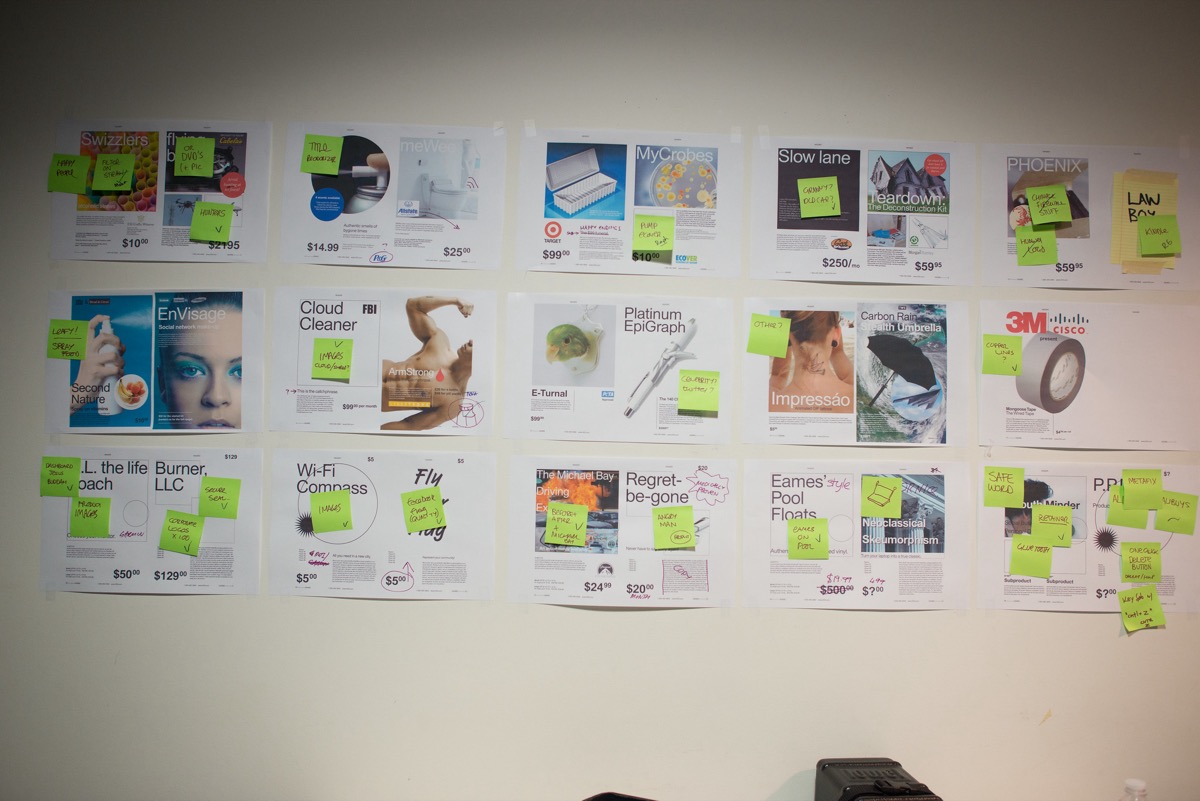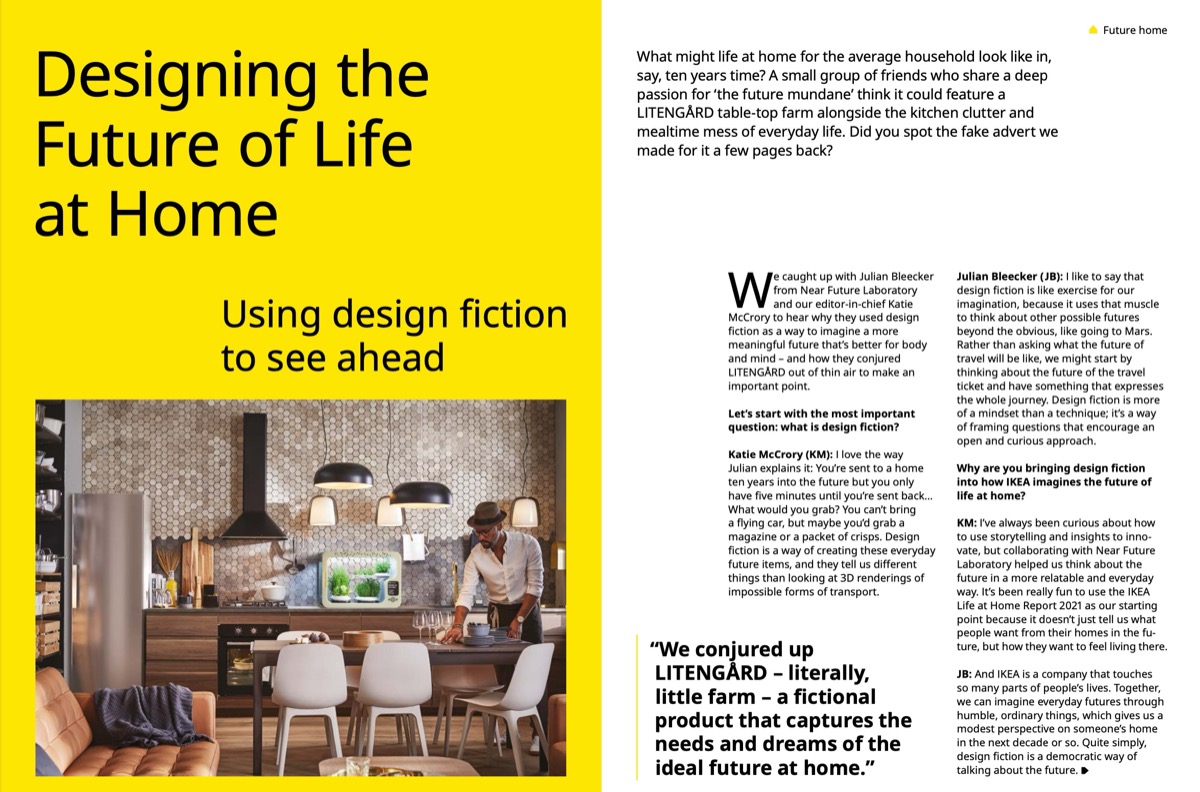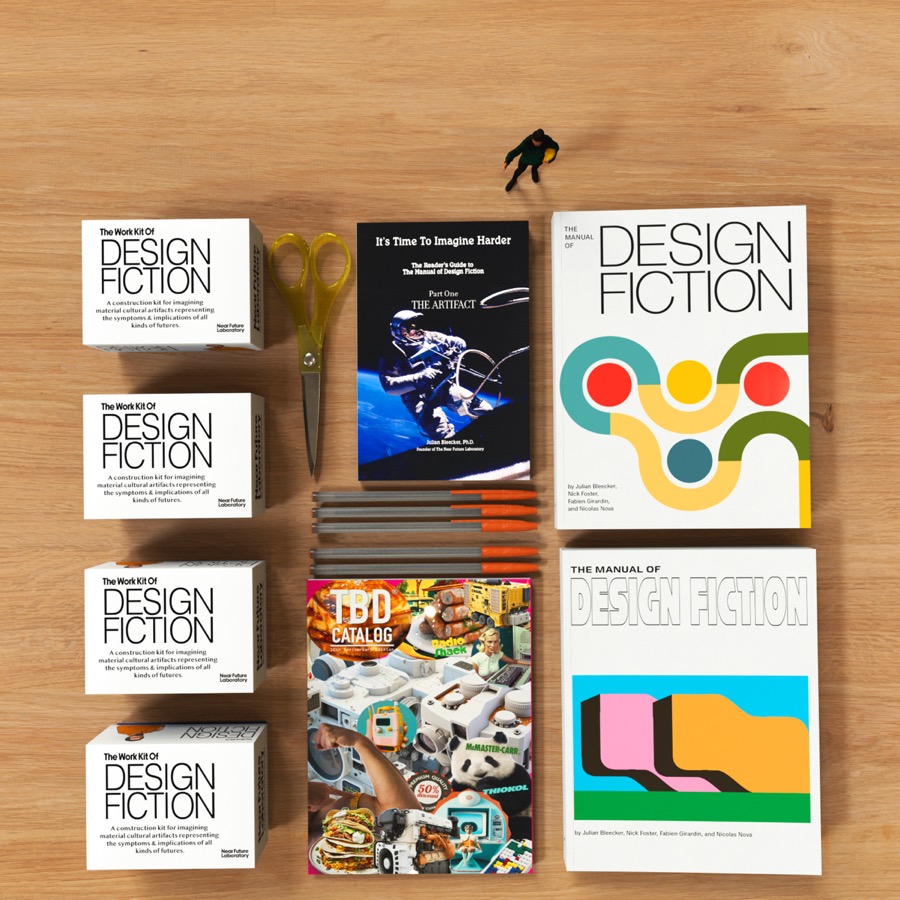
Contributed By: Julian Bleecker
Published On: Saturday, February 10, 2024 at 18:38:27 PST

Introduction to Design Fiction: A Personal Journey into Future Innovations
From the moment I was introduced to the world of science fiction, watching Star Trek (TOS) when I was a kid — on over-the-air television(!) — my imagination was captivated by the endless possibilities of the future. It set me on a path. I felt the draw of creating the kinds of things I was fascinated by in the show: the Tricoder, Phasers, and, of course, the Communicator.
This early passion not only fueled my creativity but also played a pivotal role in my journey into the design world. Design Fiction, a blend of imagination and strategic foresight, has become a cornerstone of my approach to engineering and product design, allowing me to share my curiosity about the future with our clients.
What is Design Fiction and How Can It Shape the Future of Business and Innovation?
Design Fiction serves as a powerful tool for understanding and shaping future strategic concepts and visions. By creating immersive future scenarios and tangible artifacts, it bridges the gap between the abstract and the concrete. This method enables teams and organizations to visualize and explore potential future states in a more relatable and impactful way. By asking “What if?” companies can free themselves from the constraints of the present, allowing for a deeper exploration of future products, services, and societal changes.
The Power of Fiction in Visualizing the Future
Fiction, with its ability to convey complex ideas through narrative, serves as the perfect medium for Design Fiction. It leverages themes, characters, settings, and plots to craft compelling visions of the future that are both thought-provoking and grounded in realism. This approach helps companies to envision and interrogate their future roles in a believable yet speculative context.
Practical Applications of Design Fiction: From Catalogs to Corporate Visions
Design Fiction’s versatility allows for its application across various mediums or, what we call in The Manual of Design Fiction, the Design Fiction Archetype.
Archetypes are the ‘containers’ that hold a vision of a possible future, usually in a light way.
Examples of containers are things like a product catalog from some possible near future, or a new employee handbook where the nature of work has somehow evolved.
These archetypes serve not just as important creative exercises that allow teams to brainstorm in a tangible way, but they also serve as strategic tools that provoke discussion, inspire innovation, and challenge current assumptions about the future of business, technology, and the wider social sphere.
Why Design Fiction is Crucial for Future-Ready Businesses
In an era where the fusion of physical and digital experiences is accelerating, Design Fiction offers a unique opportunity to explore the uncharted territories of tomorrow’s markets, technologies, and societal trends. It provides a framework for strategic clarity and the development of prototypes that can help organizations navigate the complexities of future innovations, from Web3 and the metaverse to new models of digital-physical product and service offerings.
Conclusion: Design Fiction as a Catalyst for Change and Innovation
Design Fiction is more than just a method for imagining the future; it’s a catalyst for change and transformation within businesses and organizations. By fostering a culture of innovation and open dialogue, Design Fiction lays the groundwork for a more adaptable and forward-thinking approach to strategic planning and product development. It challenges us to think beyond the limitations of today and embrace the possibilities of tomorrow.

Call to Action: Dive Deeper into the World of Design Fiction
For those interested in exploring the potential of Design Fiction further, I invite you to contact us at Near Future Laboratory directly to arrange a Discovery and Capabilities call to see how we can help you unlock the potential for unexpected greatness within your organization. I also invite you to check out The Manual of Design Fiction and it’s ‘Part 2’, It’s Time To Imagine Harder. I’d also invite you to join the Near Future Laboratory Discord community by becoming a Patron over at patreon.com/nearfuturelaboratory. And of course, my Near Future Laboratory Podcast, where you’ll find nearly 100 conversations with thought-leaders, industry experts, as well as emerging practitioners to provide you with deeper insights and creative inspiration.
Remember, Design Fiction is not about predicting the future; it’s about creating it. It’s time to imagine harder, so we can create the better worlds we all want to inhabit, and explore the edges of human ingenuity, innovation, and creativity.